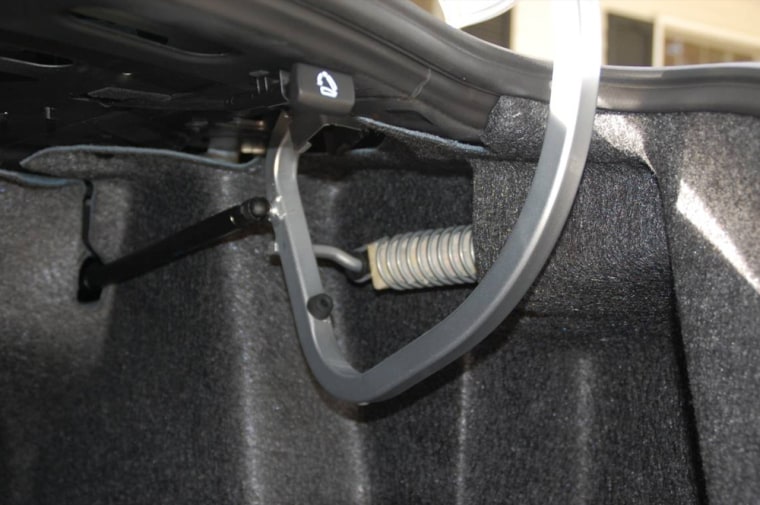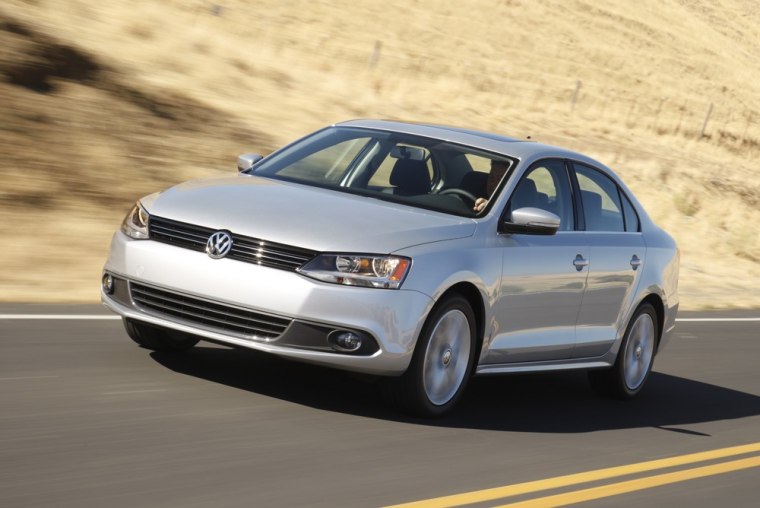“Sometimes,” Freud famously noted, “a car is just a car.” Or something like that. Other times a car is significant and laden with meaning, like a dream involving Dachshunds smoking cigars while eating hot dogs atop the Washington Monument. The 2011 Volkswagen Jetta is such a car.
That’s because the Jetta is the first tangible product of VW’s new strategy for America which the company hopes will see it not only become profitable in this market, but quadruple its sales from today’s level of 200,000 units a year.
To do that, VW needs to cut cost from its products, because the combination of expensive European labor and unfavorable exchange rates make German-made cars prohibitively expensive. And too many buyers were passing over VW’s products because competing models made specifically for the U.S. market were typically larger and roomier.
While the company surely needed to control excessive costs and could court more Americans with a smidge more elbow room, a blanket diktat to cut costs seems bound to cause trouble for a company with a reputation for cars that are appreciated for their European character.
Problem is, VW’s customers want the lavish cabin appointments that make its drivers feel they are in a luxury brand car. They want communicative steering that conveys information about the road and the car’s responses to it to a driver’s fingertips. And they want competent independent rear suspension and standard rear disc brakes. Exciting styling is good too, like that of the GTI.
The all-new, designed for America, dumbed-down, decontented, Corolla-wannabe 2011 Jetta delivers none of these things. It seems as though VW, when plotting this course, took to heart H.L. Mencken’s observation that “Nobody ever went broke underestimating the taste of the American public.”
That may well be true, but here’s hoping that Volkswagen realizes that it is unlikely to achieve its lofty sales goal by exchanging its Apple-like reputation for design aptitude for that of Microsoft.
Understand that the new Jetta is not a bad car. Far from it. The problem is that it is not as good a car as VW can build. It isn’t as good as the Chevrolet Cruze or probably the forthcoming 2011 Ford Focus. It isn’t even as good as the 2010 Volkswagen Jetta.
Just consider the exterior styling. If you can find the Jetta in the parking lot that is. This would be the perfect car for speeding; the cop would never be able to identify which car he’d seen pass his radar gun. “Um, I know it was one of these grayish four-door sedans ...”
The bland 2011 Jetta is more like the result of “If they mated” software combining Volkswagen’s targets, the Toyota Corolla and Honda Civic, than the product of a creative designer’s pen. In contrast, the 2010 Jetta, which was itself more than a little conservative, drew thumbs-up, favorable comments and cell phone photos when I tested the sporty-looking TDI Cup edition only two months ago. During a week in the new car, waving at other VW drivers on the road, the 2011 Jetta never drew so much as a glance.
If those VW drivers did examine the Jetta, a look inside would send them screaming back to their old Jetta models. The cabin of the 2011 Jetta is a wasteland of rigid, uninviting plastic. Even the upmarket SEL model has large bezels framing small displays for the navigation screen and the driver information display on the instrument panel. The information screens are inferior to those in the outgoing model and to those in incoming competitors like the Cruze, and if VW doesn’t think customers will notice, they can expect a rude awakening shortly.
No one ever decided not to buy a car because of cheap trunk hinges, but shoppers should know that the new Jetta’s cheap hinges will crush their luggage, unlike the elegant design used before. And even if cheap trunk hinges are probably not a deal-breaker, the cynical they’ll-never-notice attitude the hinges represent should be. Do you really want to buy a car from a company that thinks customers won’t know better?

VW will provide an early clue of whether newly installed CEO Jonathan Browning might be rethinking jettisoning the company’s heritage of style and sportiness when the company announces its plans for the TDI Cup racing series. That series was launched as a three-year project to emphasize the suitability of modern diesels for enthusiastic driving by using them to power cars in the race series. That deal ran out at the end of this season and will probably not be renewed. If Mr. Browning decides to continue the TDI Cup series it would be a sign that he is rethinking the notion of ditching VW enthusiasts in pursuit of appliance buyers.
All that has been sacrificed has bled on the altar of low price. The base model Jetta S starts at just $15,995. But the models people will actually buy are close to the price of the previous model. The tested Jetta SEL with the Sport package lists for $24,865, which is not cheap. At that price, consumers will demand better and others will offer it.
If the new Hyundai Elantra is as much improved as the Sonata was — Hyundai is most definitely not coasting — “What is a Jetta?” will be the forgotten answer to a Jeopardy trivia question in a decade. Meanwhile, enthusiast drivers will zoom-zoom to the nearest Mazda dealer.
Here is where I think VW can make a difference: The Jetta isn’t a terrible product, just a disappointment mostly for the philosophy it represents. The triple-sealed doors “thunk” closed like that of a Mosler bank vault. VW can still adjust course and return to its driver-centric values by upgrading other components. Building a clone of Toyota’s dreadful Corolla is no recipe for success.
At this point the Jetta is just a car. But it used to be a special car.
